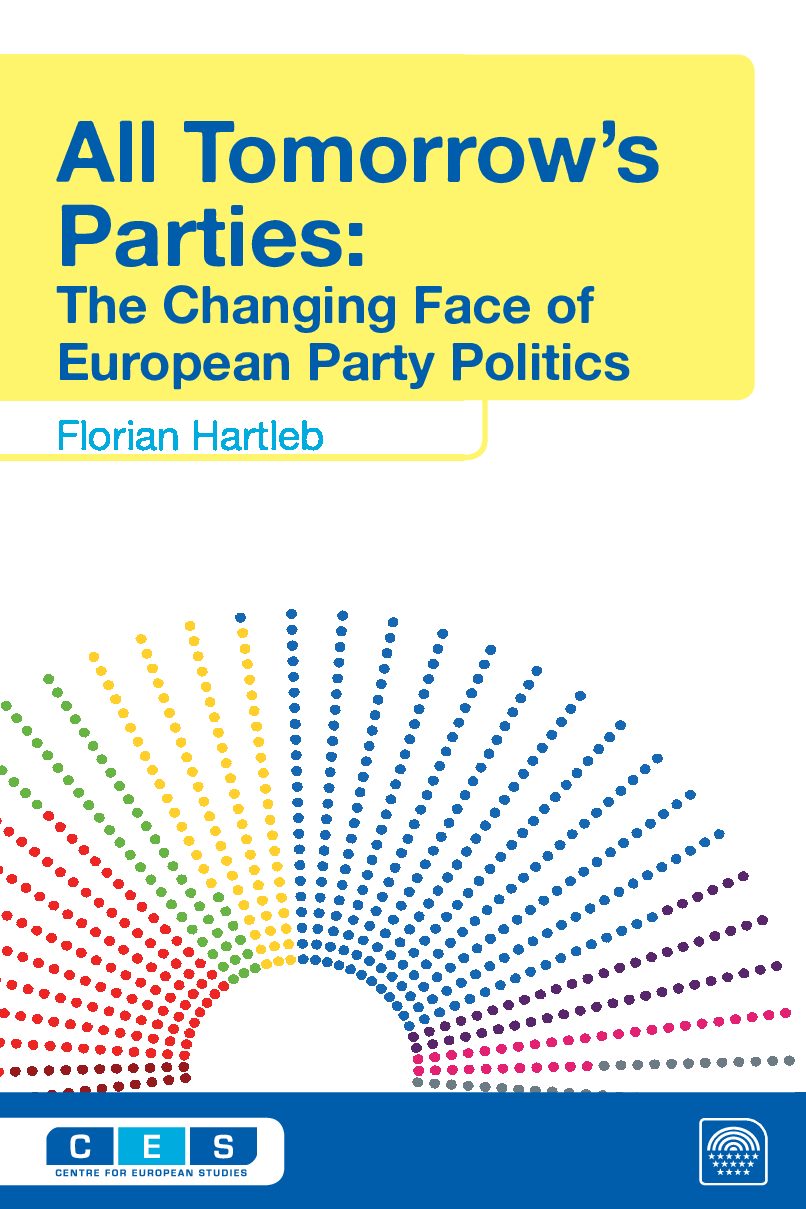Related publications
-

Research Papers
Towards a New Order? The Economic Programmes of Right-Wing Populist Parties
-
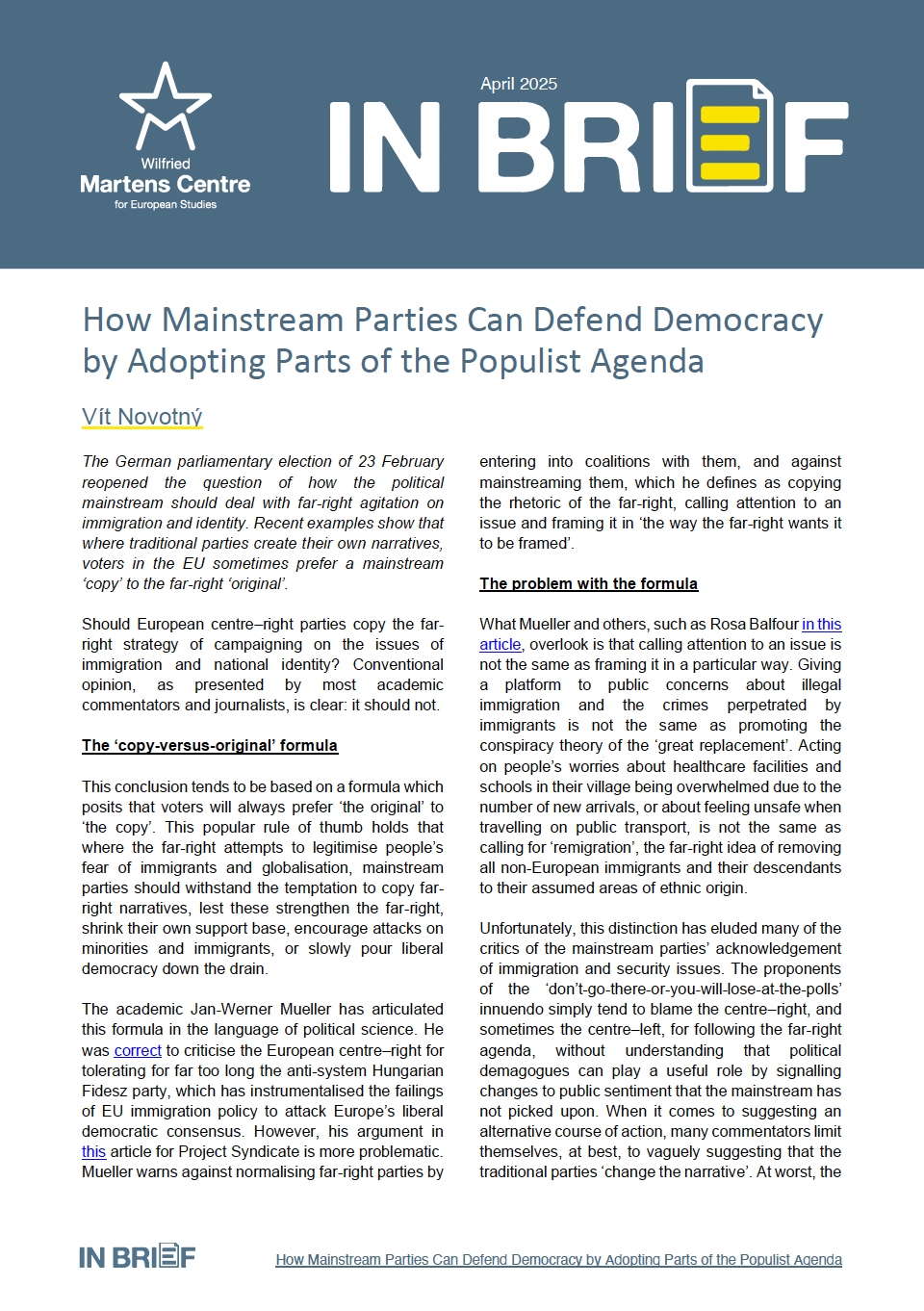
IN BRIEF
How Mainstream Parties Can Defend Democracy by Adopting Parts of the Populist Agenda
-
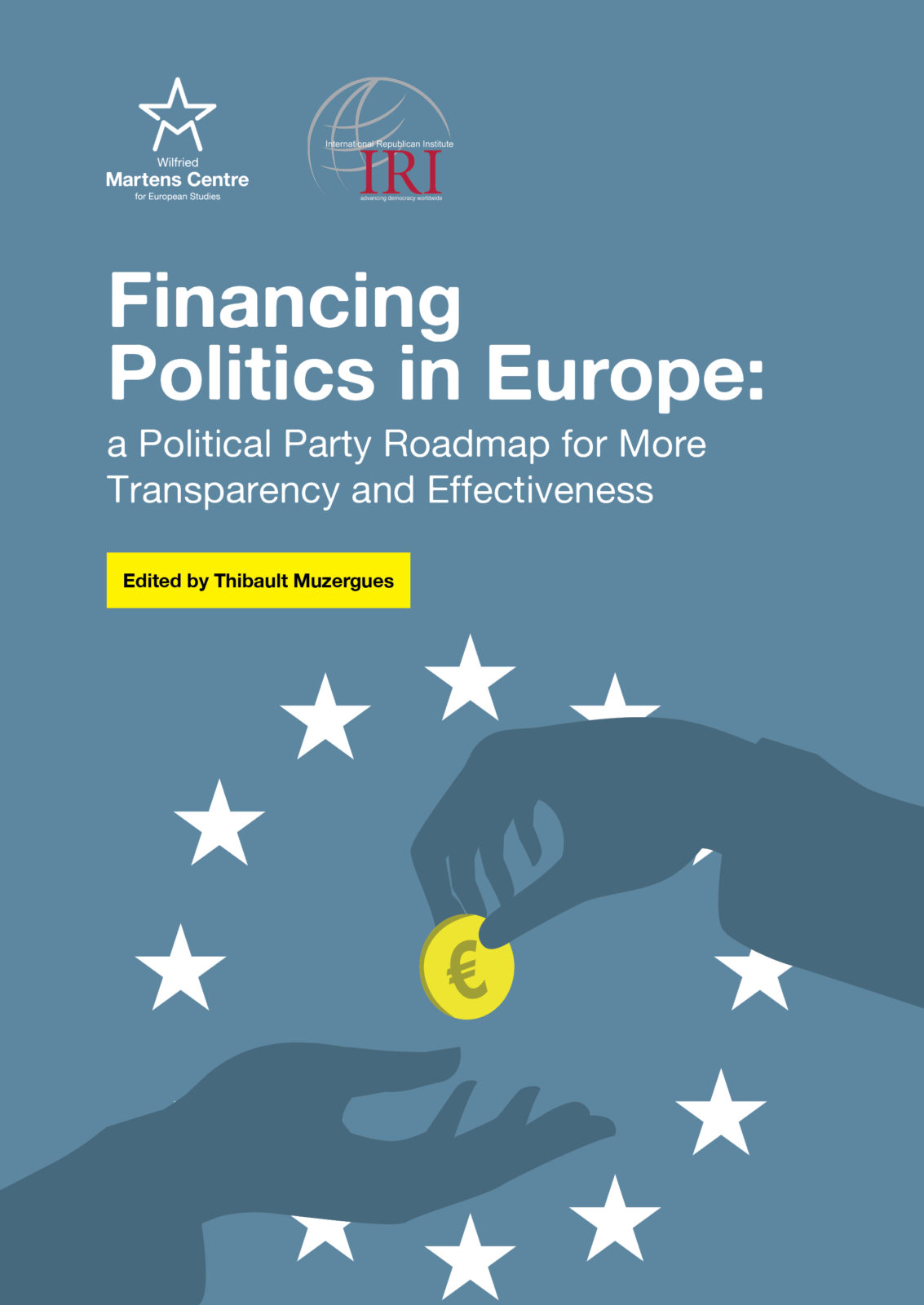
Collaborative
Financing Politics in Europe: a Political Party Roadmap for More Transparency and Effectiveness
-
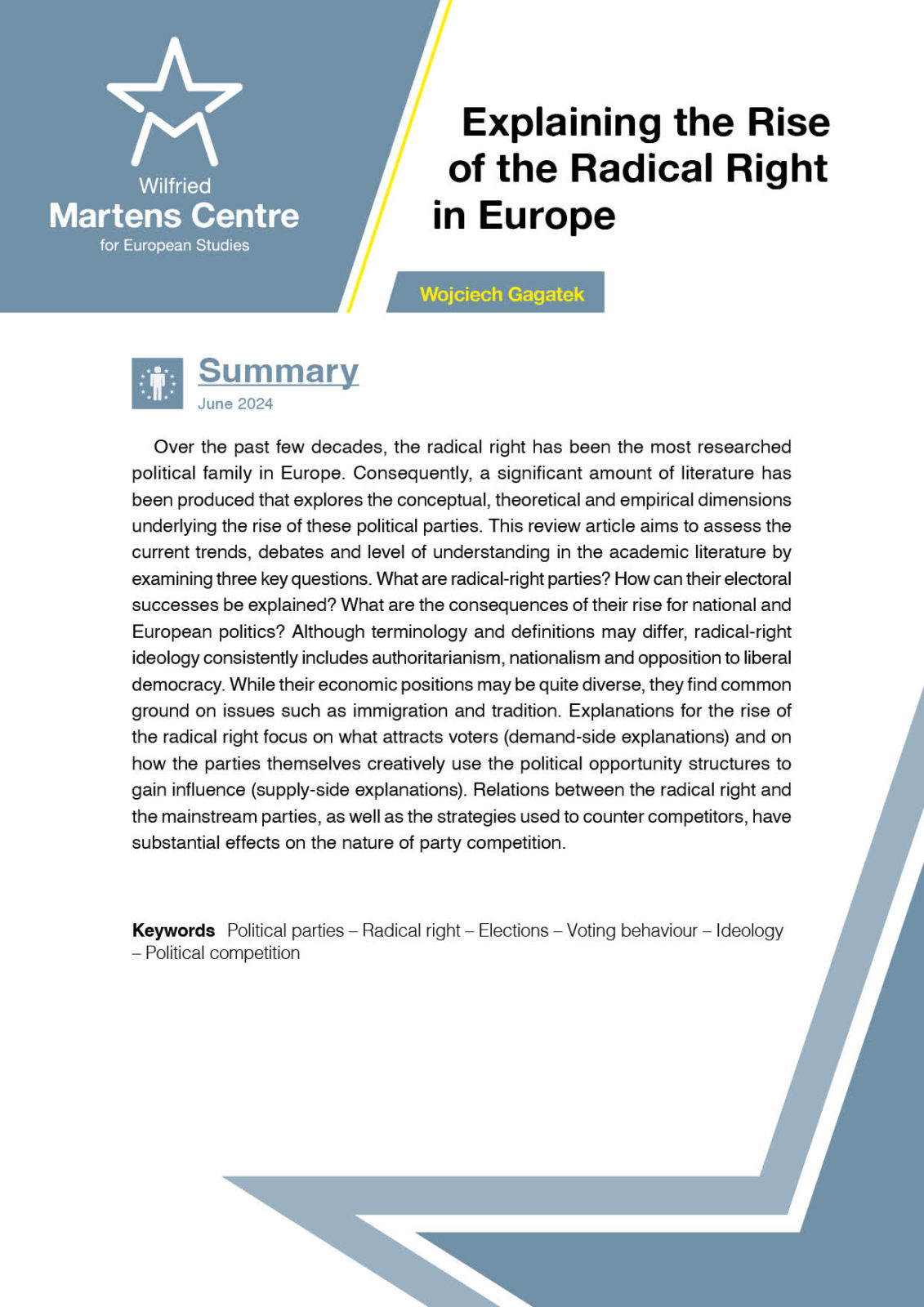
Policy Briefs
Explaining the Rise of the Radical Right in Europe
-
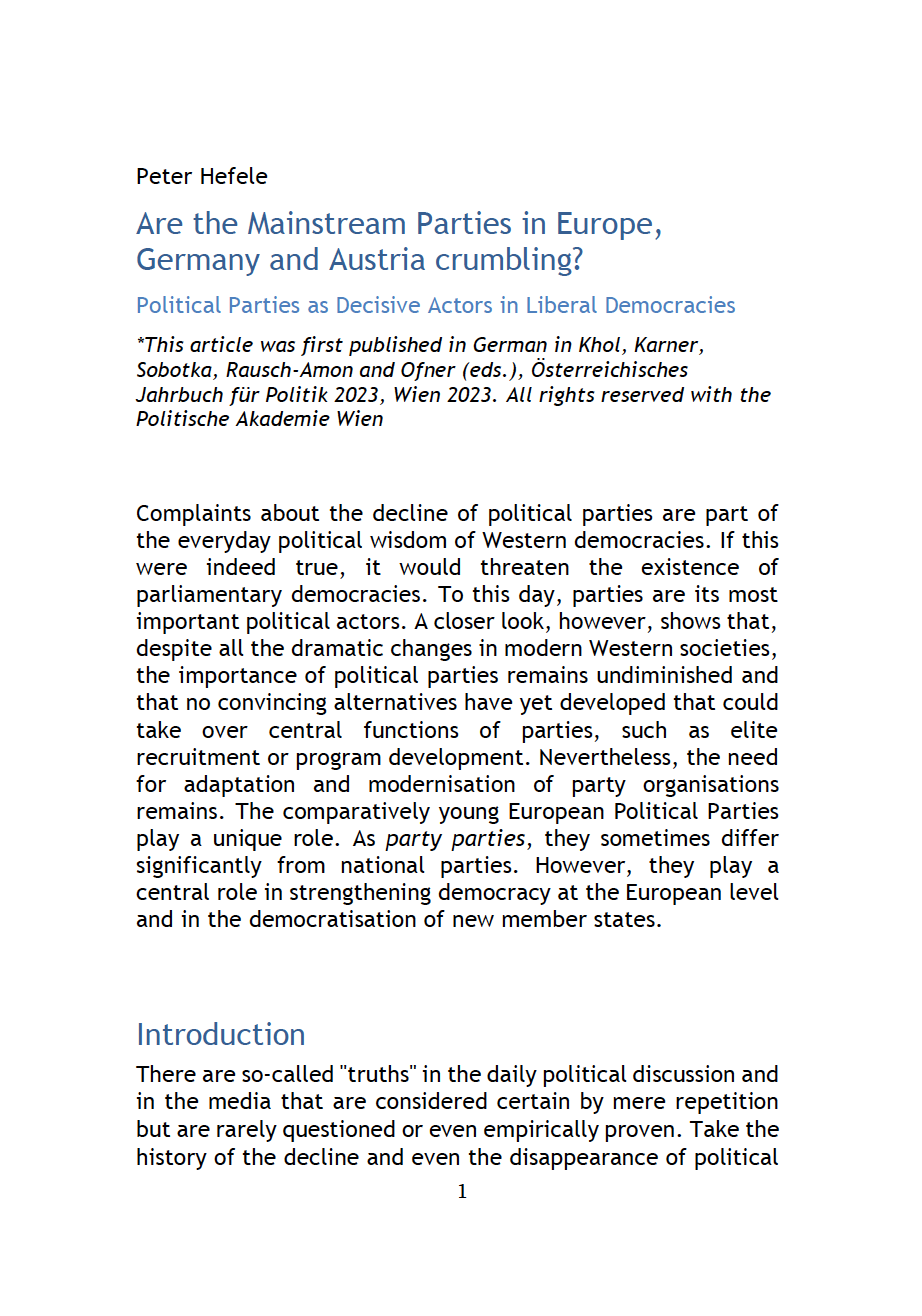
Collaborative
Are the Mainstream Parties in Europe, Germany and Austria crumbling? Political Parties as Decisive Actors in Liberal Democracies
-
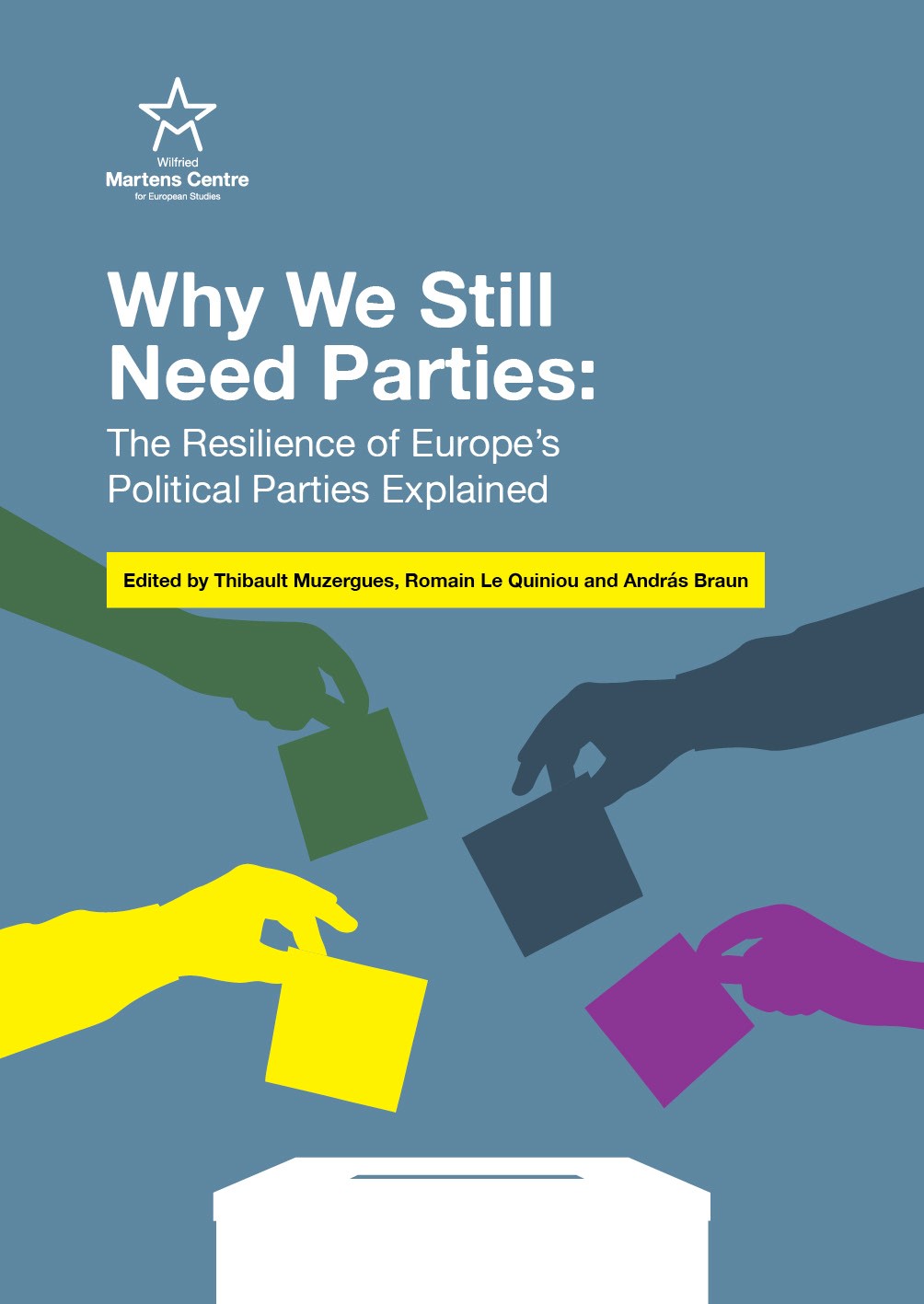
Collaborative
Why We Still Need Parties: The Resilience of Europe’s Political Parties Explained
-

IN BRIEF
Why Brexit Britain is a Threat to the EU From the Left, not the Right
-

Policy Briefs
Retaking the Cities: A Plan for the Centre–Right


